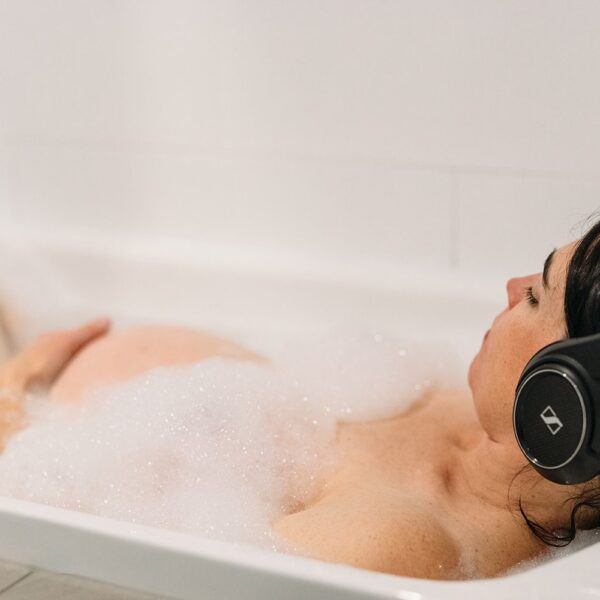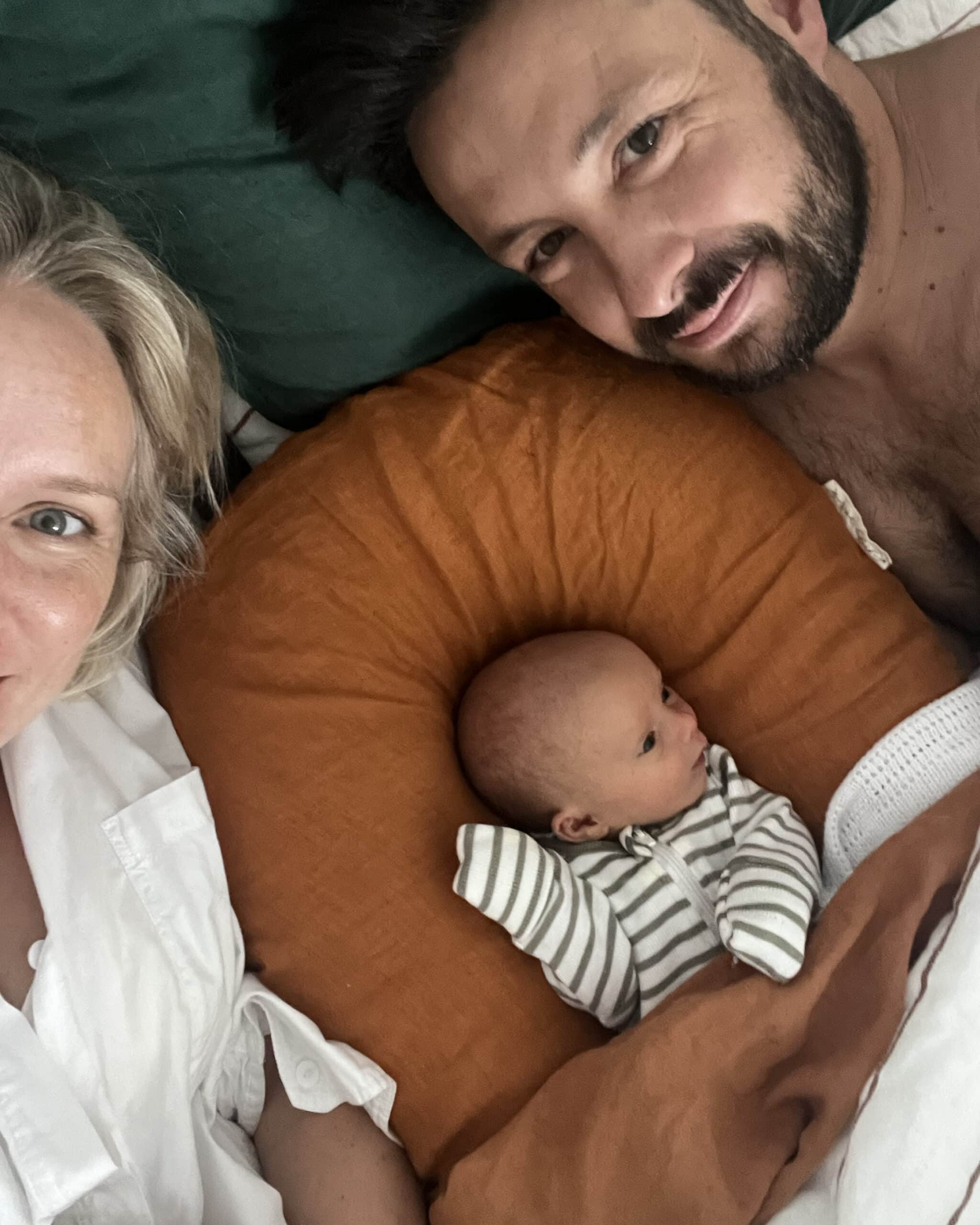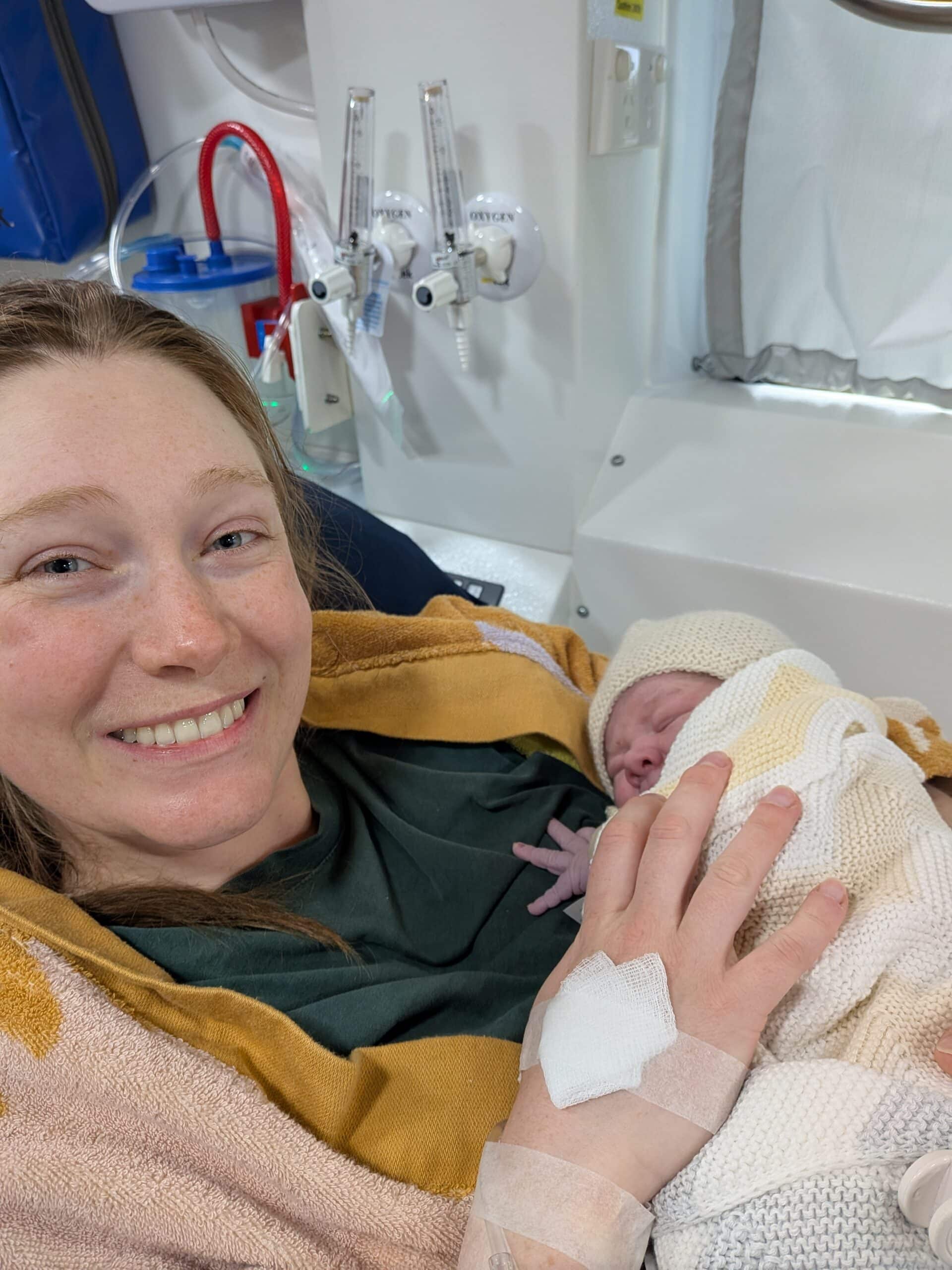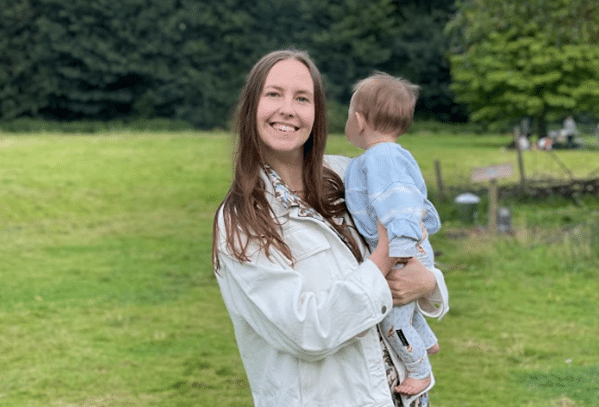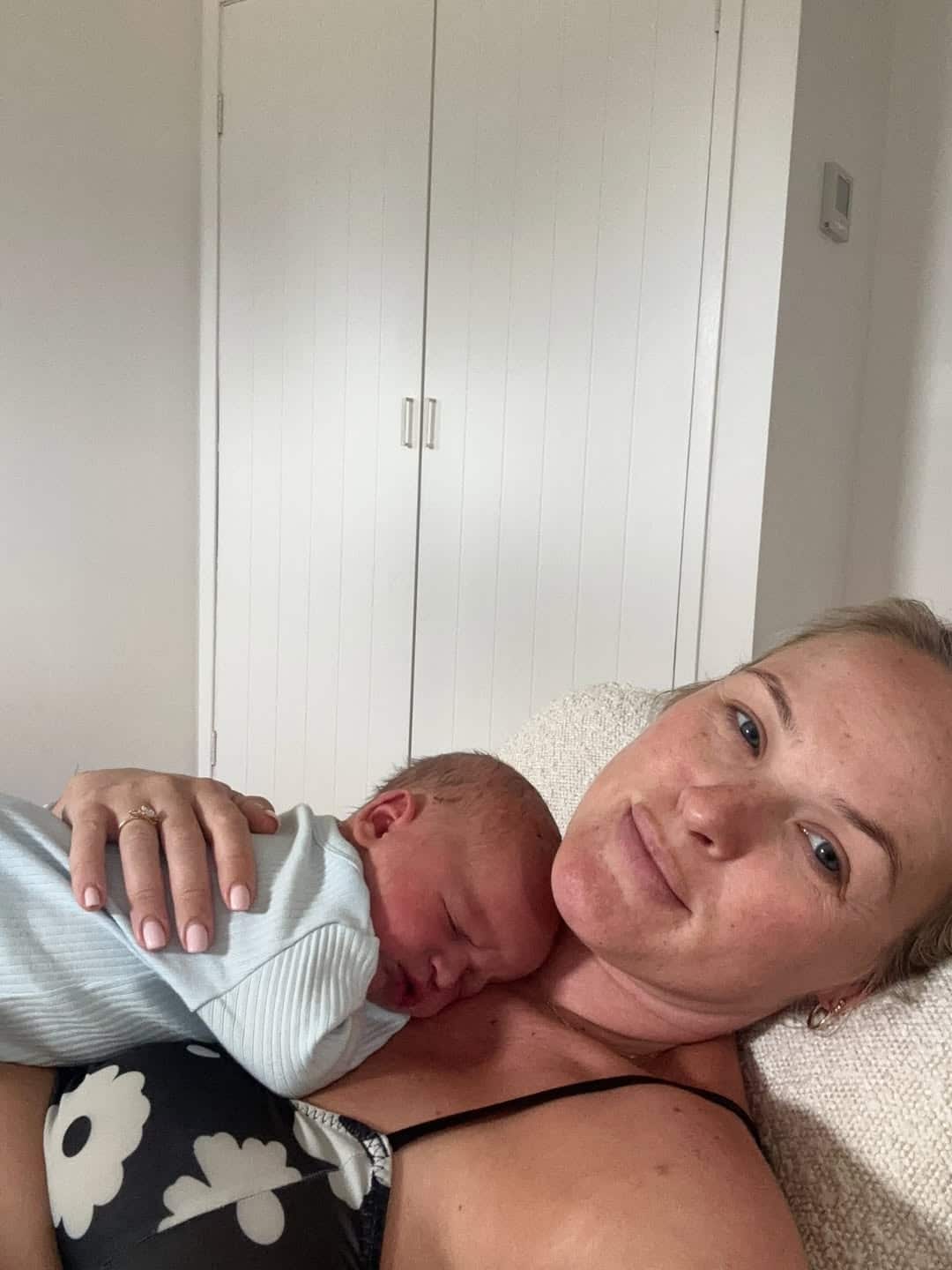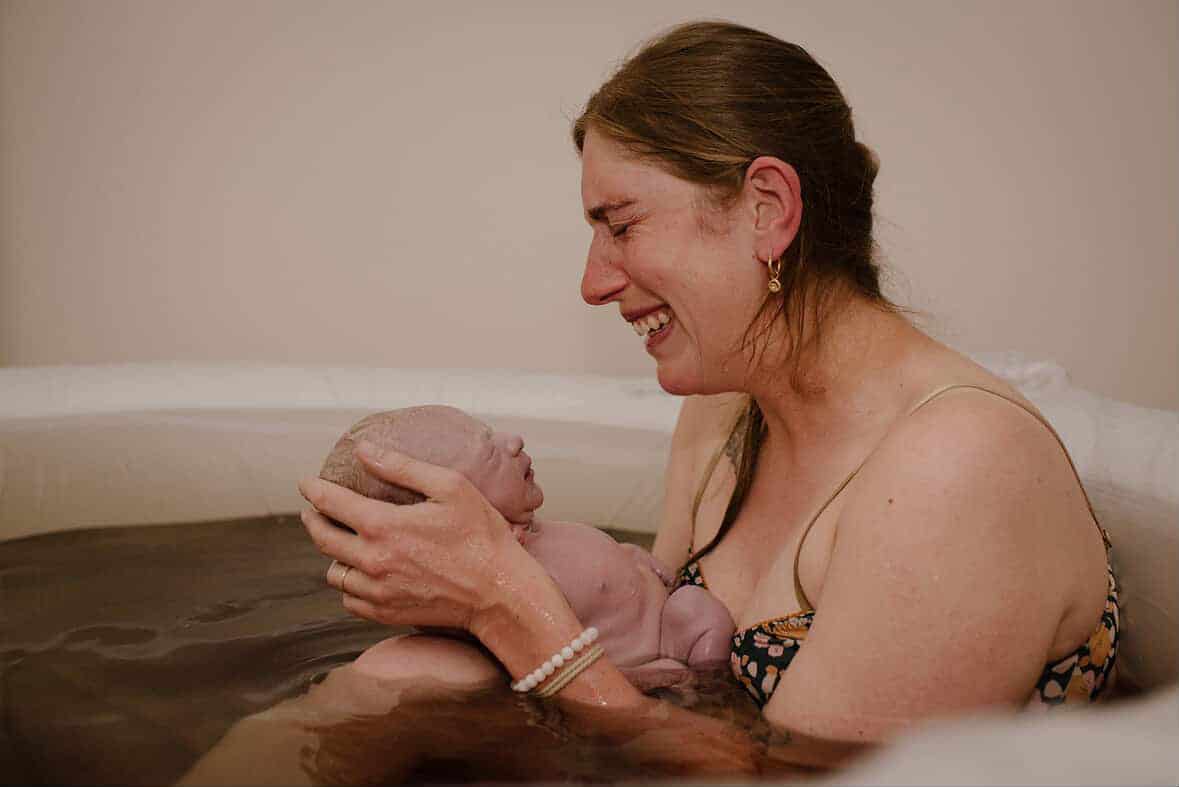Podcasts Leila – fraternal twin vaginal birth without epidural
EPISODE 419
Leila – fraternal twin vaginal birth without epidural
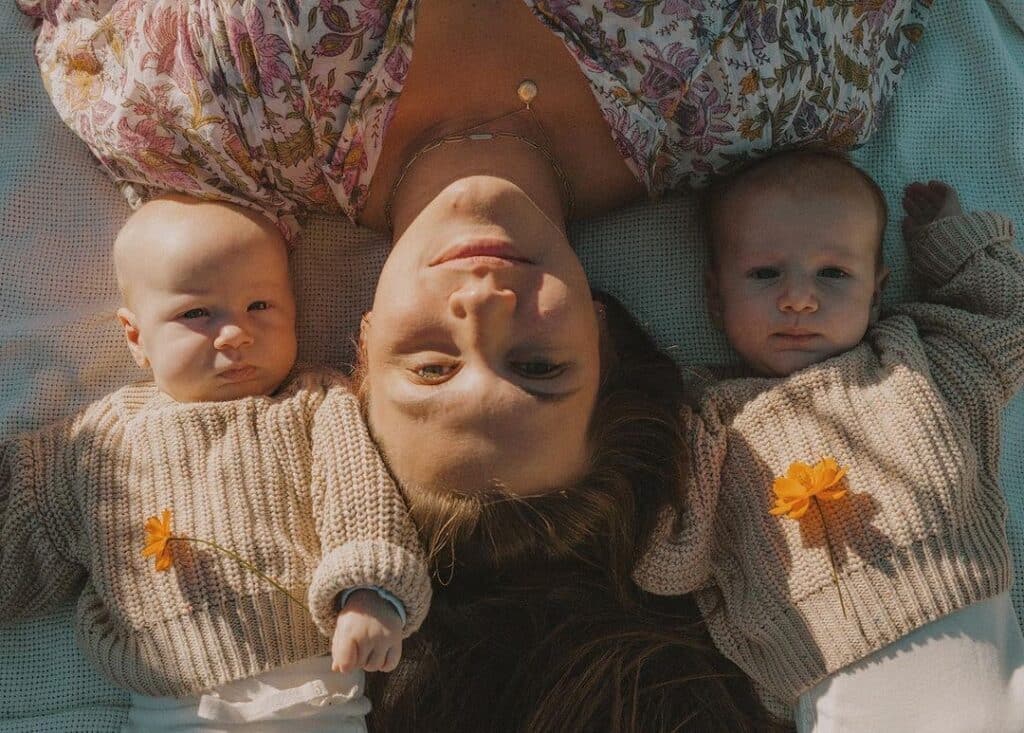
“My first pregnancy changed the course of my life – for the better. I was unemployed for most of my pregnancy so I had that identity crisis all the way through. I dedicated my pregnancy to learning about pregnancy, birth and postpartum so it launched me into my motherhood journey.
“I was lucky, my parents worked next door to a woman whose daughter was a private midwife. I went to the local independent midwifery website and it felt really aligned with me and I had a homebirth. My mum always talked about how long and painful labour was but she was always pro midwifery care.
“My husband and I watched The Business of Being Born together so we knew all our options. I’ve got a fear of hospitals and have white coat syndrome so birthing at home felt like a good option for me. I was so excited but I was also the crazy first-time mum planning a homebirth so I was mindful of who I shared that information with. My mum read The First Forty Days because it felt like what I wanted for my own postpartum and she was really open to that and supporting me in that way.
“I listened to an episode every day of Australian Birth Stories until I’d caught up and then I had to wait for the weekly episodes. I did wonder if I had antenatal anxiety at some point because all the questions I had about work and maternity leave and money were daunting. I wrapped my identity up in my business so once I’d let go of that there was a crisis around my professional identity but also who I was as a mother.
“With all my research I assumed that I would have my baby on my due date but once I got to 41 weeks I burst into tears. There’s so much emotion; you’re expecting everything to change, you’re preparing to birth and you have no idea what it’s going to feel like, I didn’t know if I’d be able to have a homebirth….so much anticipation and nerves but also trying to soak up the time with your partner. That two-week wait is not fun, it’s a really difficult time.
“We went for a big walk and on the way back the road was quite bumpy when we were in the car. We got home and went to dinner at my parents house and every 20 minutes I felt a bit of a sensation. At midnight I woke up to quite a big surge and they started coming every 10 minutes. We watched the sunrise at the beach and they were coming every five minutes. I’d say active labour started at 10am and then Billie was born at midnight so it was a long day and night.
“I was very set on having a waterbirth; I felt like it would be the best option for me and it definitely was. Billie was 10 pounds 3 and I didn’t tear which I credit to being in the water and perineal massage. There was no pushing from me, it was all involuntary. I felt like I’d left my body and I was watching it all. It blew my mind that people are told to stop pushing because it’s completely out of your control.
“I had the syntocinon injection to help birth the placenta because I was bleeding a bit. My favourite part of having a homebirth was being tucked up in bed afterwards and I didn’t leave it for a week and then I migrated to the couch. And then I couldn’t wait to show off my baby, I just wanted to shout her arrival from the rooftops.
“I didn’t realise until my mum was dropping meals off each day how helpful food is in postpartum. Because when my husband came home from work he didn’t have to be in the kitchen; he could look after me or care for the baby. I thought about the privilege it was to give my mum a book so she could understand what I wanted. I was four months postpartum when I was listening to your interview with Dr Oscar Serralach in Discovering Motherhood and I had an idea and called my husband straightaway. I thought about a collection of recipe cards that pregnant women could hand out to their friends who could then make meals for her in postpartum. From there the ball started rolling. I connected with other local mums to bring my vision to life and Village for Mama was born. Later on I trained as a postpartum doula.
“We’d been trying to conceive for nine months when I found out I was pregnant and when I discovered it was twins I was so glad it had taken nine months. Before I conceived I worked with a nutritionist, Catherine Hay from Captured Nutrition, because a blood test had showed my AMH levels were very low. I did the dutch test which is a hormone panel over 24 hours; it’s a hormonal mapping and there was an imbalance with my testosterone and I also had short cycles so we worked on that. She nerds out on science and her approach definitely worked.
“I knew exactly when I was ovulating and I’d turned into a pregnancy test addict. I messaged my nutritionist and she encouraged me to test for four days and the line got darker and I started to feel very sick – from four-and-a-half weeks. My hCG was quite high to begin with and my thyroid went a bit crazy and my doctor kept wondering how many babies were in there. I didn’t want to do a scan till 20 weeks but at 9 weeks my GP really encouraged me to get a scan. We went in and as soon as the ultrasound was up we could see it was twins. My husband was grinning from ear to ear and I was laughing and crying in disbelief.
“I’d already hired a birth photographer and I asked for her advice for a midwife and I found one. But she couldn’t support me at home so I didn’t end up having her. I ended up hiring another beautiful midwife who was more experienced with twins and would be fierce in the hospital; I felt like she had that protective energy I needed to navigate a twin birth in the hospital. I didn’t expect to get to 41+2 and get induced; that totally blindsided me. I didn’t sleep for the last week.
“The hospital was really supportive until 38 weeks and I was so glad I had my private midwife then. At that point I went into hospital appointments and I got a lot of information thrown at me that wasn’t even relevant to my twins which were fraternal DCDA twins – two sacks and two placentas. I wanted to birth in the water but I’d ticked over 100kg and they said I couldn’t have a water birth if I was over 100kg. They told me I needed an epidural, syntocinon in the leg as soon as the shoulder of the first baby is born. Both of the placentas come out after the babies – it’s baby, baby, placenta, placenta. My placenta fused together so it was huge. Understanding how big that wound was really played into my postpartum rest journey.
“It was a bit of a fight at the end and I didn’t go to a few appointments because I was having daily checks with my midwife at home. I felt great – I was big and heavy – but I felt good and all my levels were great. Every time I went to the hospital I felt so scared and worried. My private midwife helped me write an amazing birth plan that was directed to obstetricians, including the insertion of a cannula and a scalp clip on twin A because you can’t use two dopplers at the same time.
“There was a chain of events that led me to be induced. I met a midwife who was phenomenal and she’d had homebirths and a twin hospital home so I was induced on the day that she was on. I was so anti-hospital and anti-system but I actually had a really beautiful experience. She was very mother-centred and there was a female obstetrician on and she was negative the day before but on the induction day she organised a briefing, she made sure everyone was aware of my birth plan and I did feel supported. I had full trust in my body and my babies. I wanted to use gravity and water and all the monitoring was happening outside the door because I wanted to be separate from that.
“I had them in the water, Noah was 4.4kg and Joey was 4kg – I had big babies, no tearing and I was so happy to be doing it in water. There was 48 minutes between them. It was the perfect amount of time. The obstetricians were concerned so the hospital midwife palpated my baby to make sure he was vertical and not transverse. I did a little push which prompted a contraction and then he flew out. I had 10kg in my belly alone and I was scared to stand up with my centre of gravity and the size of my belly. Twin mums need to have good compression underwear or something to hold it all in because you feel quite vulnerable for a few weeks actually because of the size of your belly and having nothing in it. I eventually got on the bed and after I’d birthed the placentas I had a postpartum hemorrhage of 1L so I stayed overnight so they could monitor me. I had food delivered to me in the hospital.
“I was trying not to project my first breastfeeding journey onto the boys but I was worried about supply. It was quite interesting because Noah, who was born first, latched well but Joey didn’t. They weren’t very interested in feeding in the first 12 hours. Noah had a lazy latch and Joey brought my milk in. And then I tandem fed them through cluster feeding for six hours at a time. There was no pain with the latching but I was feeding them for hours. I used three different breastfeeding pillows till I found one that worked. I’ve been using the football hold but I was desperate to get to the point where I could feed them lying down. I’ve got a superking bed so we co-sleep. Initially Ross was in with Billie but I only slept an hour a night for the first few weeks so Ross came back into the room to help through the night.”

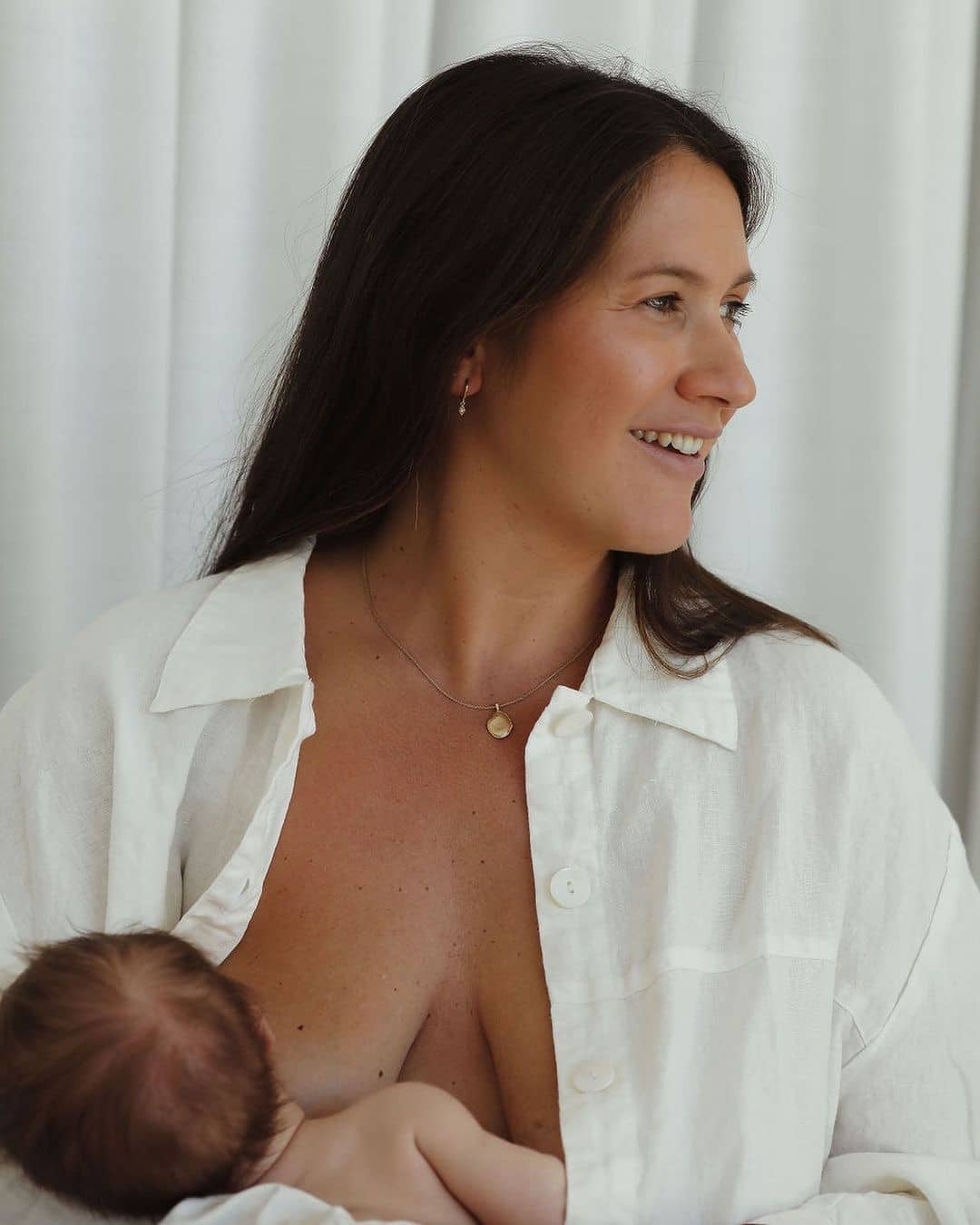
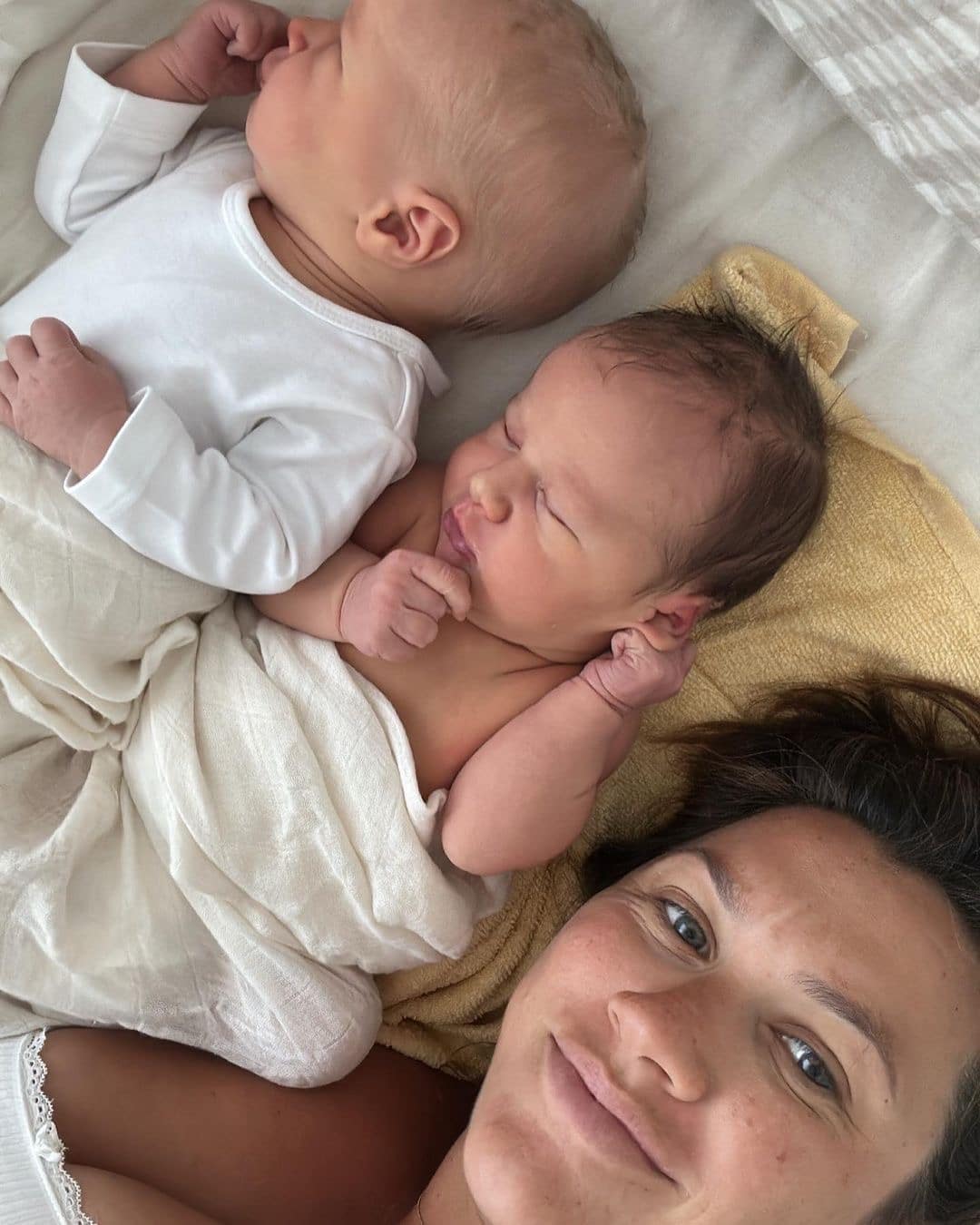
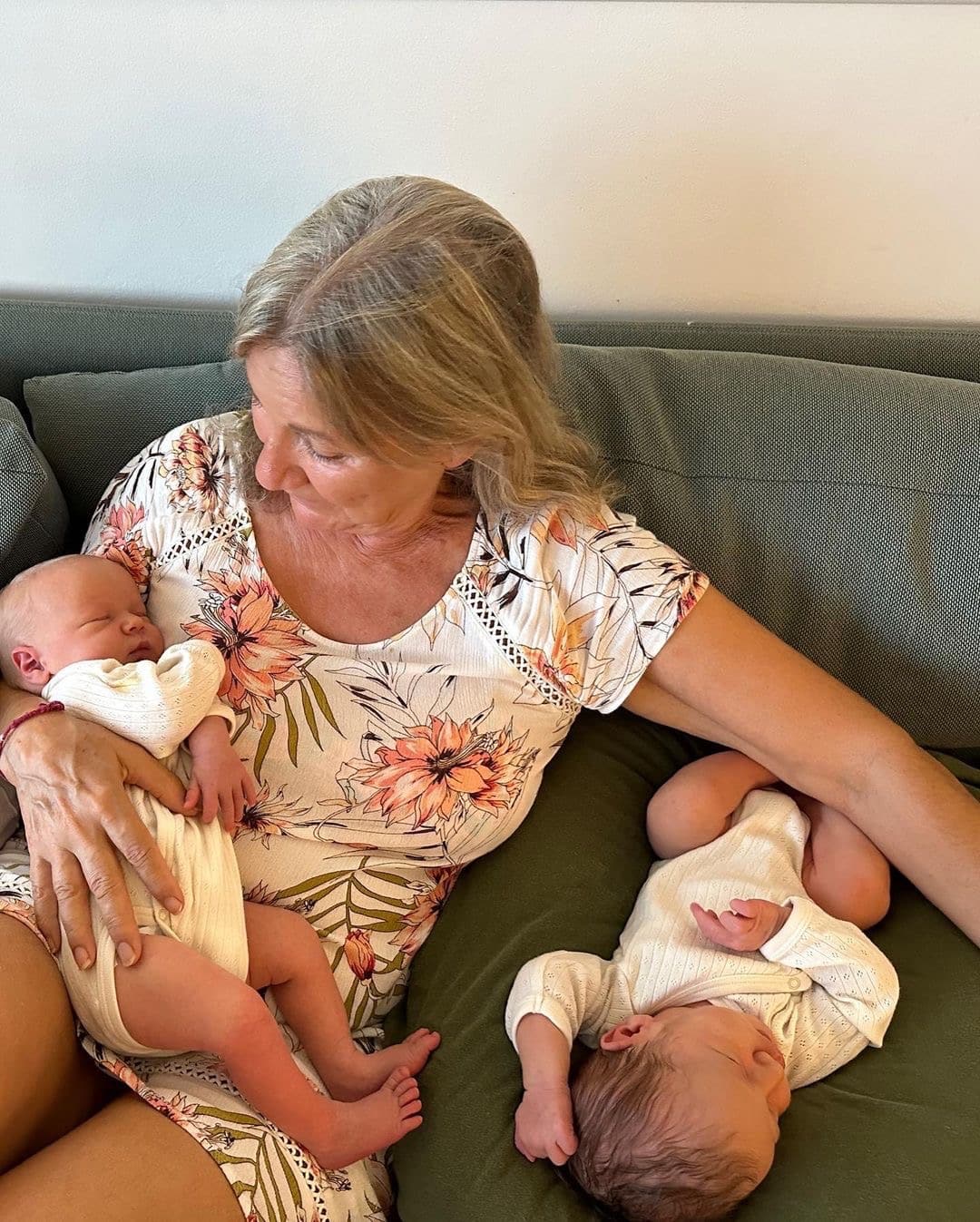
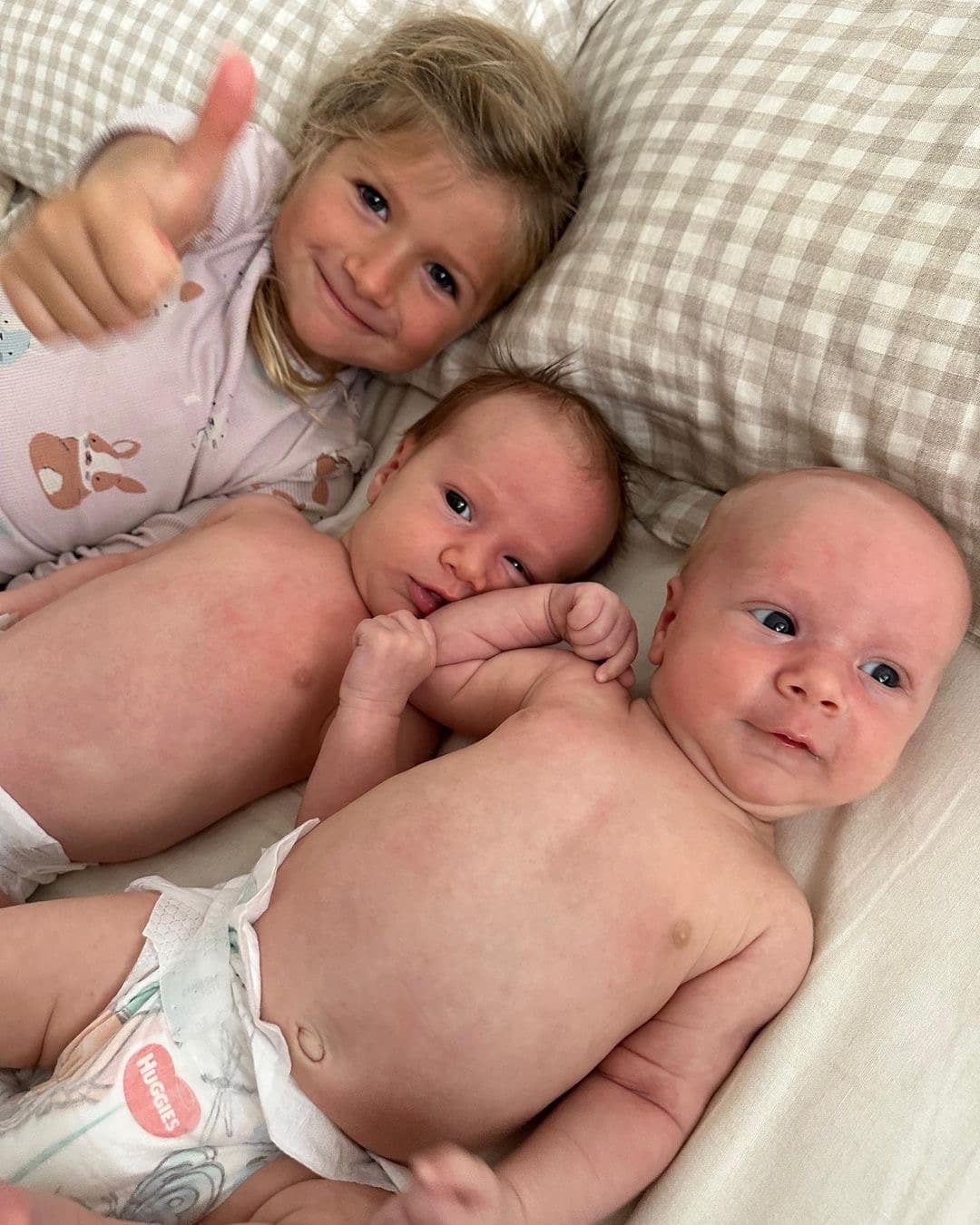
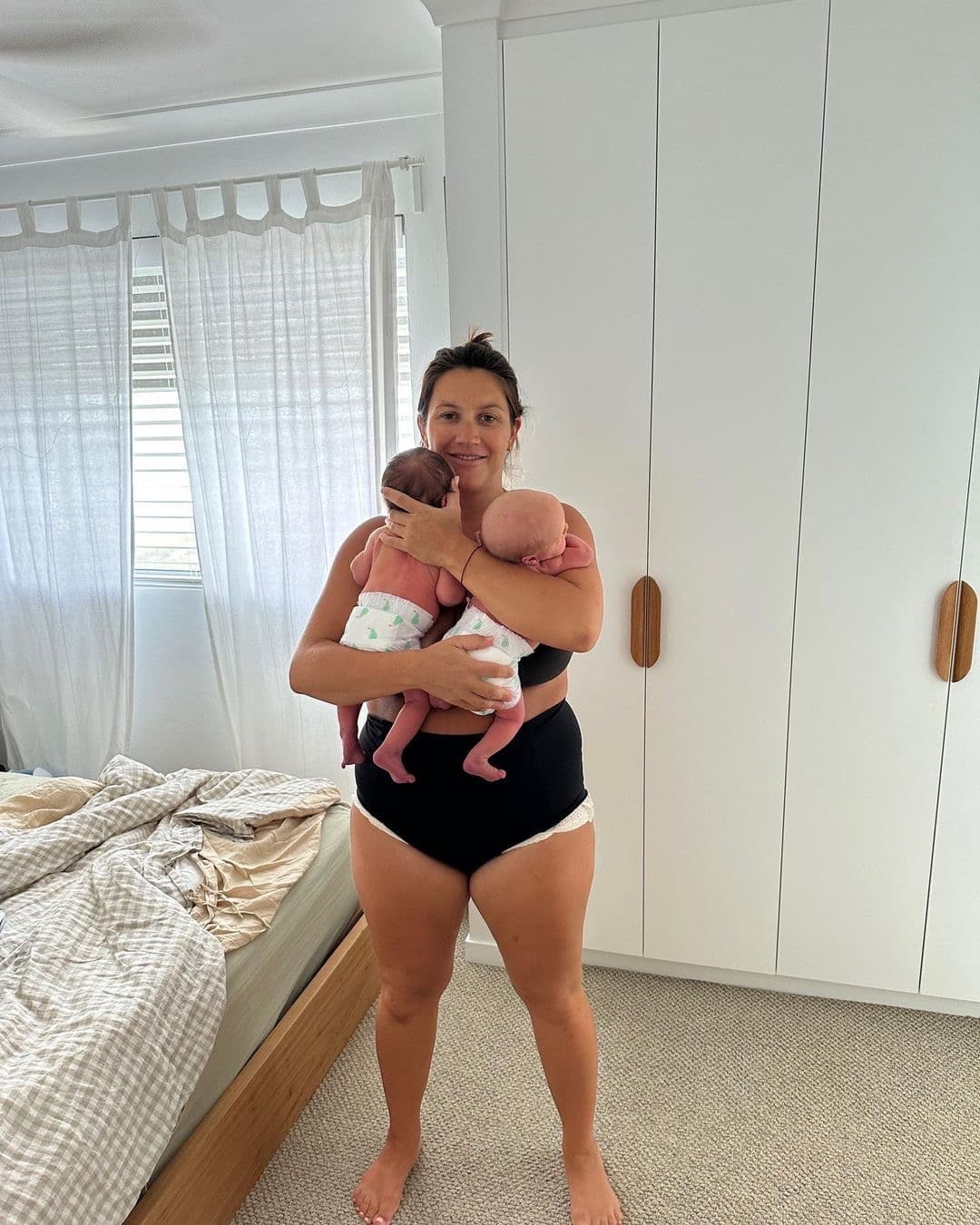

Topics Discussed
fraternal twin vaginal birth without epidural, homebirth, planned postpartum, Private midwife
Categories
Related Products
-
Birth Meditations
$49.00Narrated by Sophie Walker, these soothing and informative meditations help you feel supported and confident around birth.
Join the conversation
Sign up to get the latest updates, freebies, podcast releases straight into your inbox
@AustralianBirthStories
Follow along with us
@AustralianBirthStories
Follow along with us
@AustralianBirthStories
Follow along with us
@AustralianBirthStories
Follow along with us
@AustralianBirthStories
Follow along with us
@AustralianBirthStories
Follow along with us
@AustralianBirthStories
Follow along with us
@AustralianBirthStories
Follow along with us
@AustralianBirthStories
Follow along with us
@AustralianBirthStories
Follow along with us
@AustralianBirthStories
Follow along with us
@AustralianBirthStories
Follow along with us
